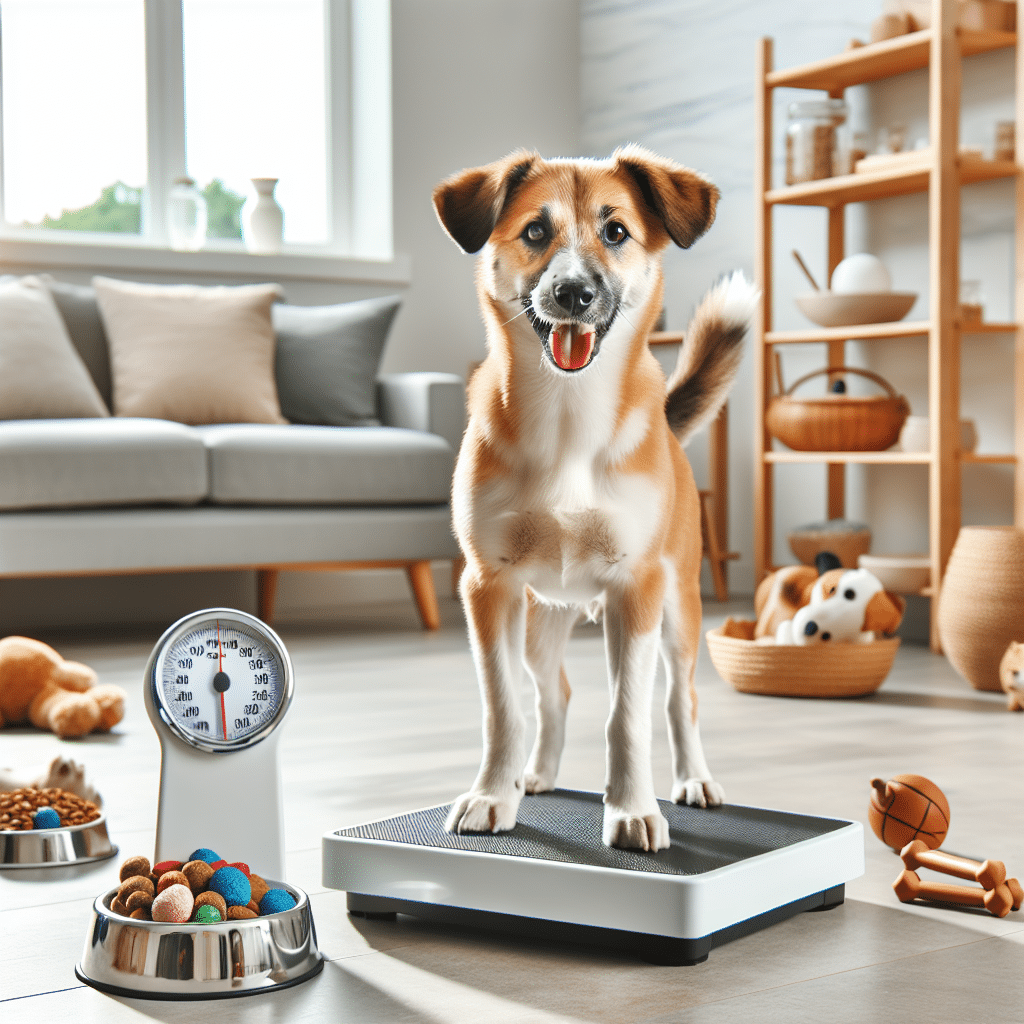Understanding Dog Weight Management
Maintaining a healthy weight for your dog is essential for their overall well-being. Weight management not only improves your dog’s quality of life but also extends their lifespan. This article provides detailed strategies to help you manage your dog’s weight effectively at home.
Recognizing Ideal Weight
First, familiarize yourself with the standard weight range for your dog’s breed. Consult a veterinarian to determine your dog’s ideal weight, taking into account age, breed, and health status. Observe your dog’s body shape: you should be able to feel their ribs without excess fat covering. Their waist should be apparent when viewed from above, and their abdomen should tuck up from the rib cage to the hind legs.
Portion Control
Measuring Food: Use a measuring cup or scale to portion your dog’s food accurately. Follow the feeding guidelines on commercial dog food packaging, but remember, they are general recommendations. Adjust according to your dog’s activity level and needs.
Scheduled Feedings: Establish a regular feeding schedule, typically twice a day for adults and three to four times for puppies. This routine helps regulate metabolism and digestion.
Treat Moderation: Treats can quickly contribute to excess weight. Aim to keep treats at no more than 10% of your dog’s daily caloric intake. Choose healthy options like carrots or apple slices instead of high-calorie commercial treats.
Choosing the Right Food
Nutritious Diet: Select high-quality dog food that lists meat as the primary ingredient and contains essential nutrients. Foods rich in protein and fiber can help dogs feel fuller for longer.
Weight Management Formulas: Consider weight management-specific dog foods that are lower in calories yet still satisfying. These formulas are often designed to aid weight loss without sacrificing nutrition.
Hydration: Always ensure your dog has access to fresh water. Sometimes dogs can confuse thirst with hunger, leading to unnecessary calorie intake.
Increasing Activity
Daily Exercise: Regular exercise is vital. Aim for at least 30 minutes of activity for most dogs, which can include walks, playtime, and various interactive games. Adjust the duration and intensity based on your dog’s fitness level.
Variety is Key: Change up your routine to keep exercise engaging. Incorporate activities like fetch, hide-and-seek, or agility training to stimulate both mind and body.
Playdates: Arrange playdates or walk with friends who have dogs. Social interaction encourages more active play and can enhance your dog’s physical fitness.
Behavioral Management
Mindful Feeding: Avoid free feeding, where food is always available. Instead, allow meals solely during designated feeding times. This practice encourages your dog to consume appropriate portions.
Training Rewards: Incorporate training sessions into your regular routine to increase activity and reduce unintentional over-treating. Use praise or toys as rewards rather than food.
Engagement: Keep your dog mentally stimulated with puzzle toys or interactive feeders to distract from food cravings and reduce boredom.
Monitoring Progress
Regular Weigh-Ins: Weigh your dog regularly, ideally once a month, to monitor changes in weight. Track their progress in a notebook or with a mobile app to make adjustments to their diet or exercise routine as needed.
Body Condition Score (BCS): Use the BCS system, where a score from 1 (underweight) to 9 (obese) helps evaluate your dog’s weight management. Aim for a score between 4 and 5 for a healthy dog.
Click and Treat: Utilize a clicker to mark good behavior and accountability in maintaining weight goals. It reinforces positive actions without food rewards.
Healthcare Support
Veterinary Consultations: Schedule regular check-ups with your veterinarian to discuss weight management concerns. They can provide guidance tailored to your dog’s specific health needs.
Preventive Health Care: Vaccinations, dental care, and parasite control contribute to your dog’s overall health. A healthier dog is generally more active and less likely to gain excess weight.
Consider Professional Help: A veterinary nutritionist can offer personalized dietary suggestions, especially for dogs with underlying health conditions that affect their weight.
Home Cooked Meals
Balanced Nutrition: If you prefer preparing home-cooked meals, ensure they’re balanced with the right proportions of protein, carbohydrates, and fats. Consult with a vet for suitable recipes that meet these nutritional needs.
Portion Control for Home-Cooked Meals: Just like commercial food, monitor portions closely to avoid overfeeding. Keep meals consistent in terms of ingredients and portions for better weight management.
Special Considerations for Senior Dogs
Older dogs may need modified diets and exercise programs as they often have slower metabolisms and joint issues impacting activity levels. Focus on gentle, low-impact exercise like short walks or swimming to keep them active.
Adapting for Different Breeds and Ages
Each breed may require unique interventions for weight management. For instance, smaller breeds may be more prone to obesity due to their size, while larger breeds may have specific dietary needs that must be considered. Tailor your approach accordingly for optimal results.
Mental Health
Caring for your dog’s mental health is just as essential as physical well-being. Stress and anxiety can lead to overeating or poor lifestyle choices. Engage in activities that promote bonding, such as training or playing, to alleviate stress.
Community and Support
Join pet owner forums or local groups focused on weight management to share experiences and gain support. Resources, tips, and peer encouragement can be vital in making lifestyle changes to better your dog’s health.
Continue Educating Yourself
Stay informed about canine nutrition, exercise, and health developments through reputable sources online and in print. Being educated will empower you to make informed choices in managing your dog’s weight effectively.
Managing your dog’s weight at home involves a holistic approach that encompasses diet, exercise, and emotional well-being. Consistency and monitoring will assist in achieving and maintaining a healthy weight for your beloved furry friend.
